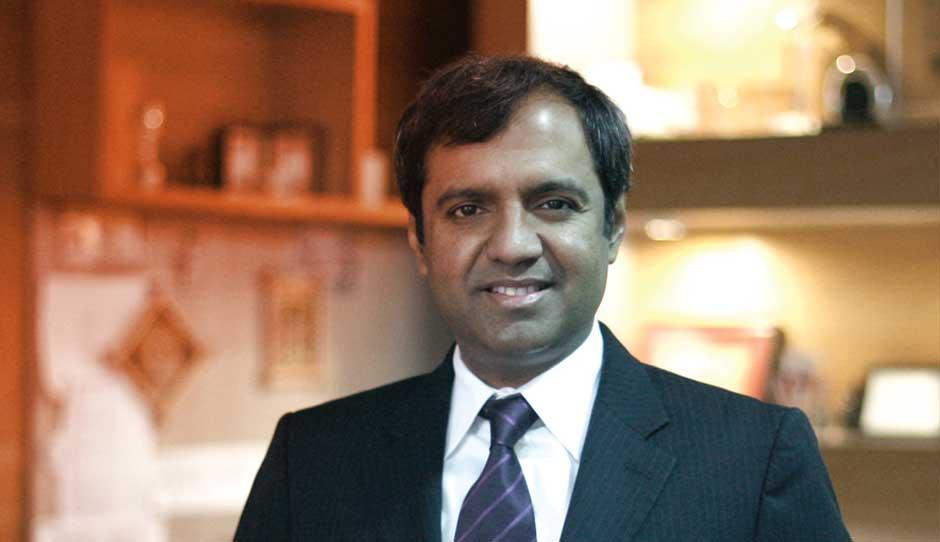How Shantanu Prakash Became an Education Entrepreneur
- BY Ira Swasti
 In
In  20724
20724 0
0

There isn’t an education vertical that the Gurgaon-based education giant Educomp Solutions has not ventured into since its inception in 1994. Sample this. The Rs1,522-crore company runs over 250 pre-schools, 69 K-12 schools, seven colleges, one higher education campus, 343 vocational training centers and 74 test prep centers. But wait, there’s more. Founded by Shantanu Prakash, the 17,000-people company manages to reach 20 million students across the globe. Prakash is happy with the numbers but says creating an entrepreneurial culture in the education sector has been his greatest achievement.
I grew up in Rourkela. My father used to work at SAIL and my mother was a school teacher. We moved to Delhi after I completed grade 10. I did my bachelors in commerce from the Shri Ram College of Commerce, Delhi University. During my college days, I used to run an events management company along with a friend where we’d organise rock concerts in hotels and sell tickets. We made about Rs4-5 lakh which was fairly good money in the 80s. But then the stock market bug hit me and I lost all my money trading on the Delhi Stock Exchange.
The events business was more like a side hobby that I pursued in college. I realised that there was more value in getting an MBA from the IIMs and I knew that I could always come back and do business. So I temporarily suspended the events business to go to Ahmedabad while my partner continued to run it. While doing my MBA, I realised that the events business was not something to build a career on. I wanted to do something more serious that could create a greater impact.
Fortunately, at that time, CBSE had introduced computer science as a new subject in schools and schools had no idea of how to set up a computer lab. I saw a great opportunity there and set up a small company along with another partner that helped schools build computer labs. I didn’t have formal training in computers or IT but a good entrepreneur is one who knows how to acquire the knowledge even if she doesn’t have it. So I got other people who had that domain knowledge to do it for us.
The Educomp Smartclass that claims to be the world's first fully-integrated one switch digital interactive system for classrooms.
We had started this business with almost zero capital. We went to schools, got contracts to build a computer lab, and then went to companies that leased computers, showed them the contracts to get their hardware. These companies used to charge a very high rate of interest, about 20 per cent in those days. But it still made sense as the business was profitable. Expensive capital is better than no capital and as you start building something, capital also slowly starts coming to you. We grew to about 50-60 schools by the second year. Our turnover around that time was Rs4-5 crore. But soon, there were some differences in he way my partner and I saw the future of our business.
I believed that in India, the real challenge was not in setting up computer labs. Our education sector had a more fundamental challenge, and that was—how can you make children learn better? This realisation hit home when one of the schools we’d set up a computer lab in had a technical snag. The entire computer lab shut down. But, the school went on undisturbed. That made me realise that computer labs were not very important to the functioning of the school—they were not the heart and soul. So I started asking teachers what is really important about running the school and they said that the reason we exist is to make children do better at school.
A good entrepreneur is one who knows how to acquire the knowledge even if she doesn’t have it.
To make that happen, we needed to invent better ways to help them learn maths and science. This required a lot of research and development, and meant taking the company in a completely different direction. My partner on the other hand wanted it to be a product company building computer labs for schools. I wanted to create something else altogether.
So, we decided to part ways. We split the revenue from the business amongst ourselves. He continued to run that business while I set out to lay the foundations of Educomp, with less than Rs1 lakh in hand in 1994. I think I got my first school to buy our software more on faith than on data. We didn’t have a software or sophisticated product to go by. I was already in the education business and knew a few school principals. We went to teachers to show them what we had, and when they asked us how much more content we had, we said we didn’t have more but we could develop more according to your needs.
While selling our products to teachers, I learnt that understanding the customers’ pain was more important than what we had to offer. When you’re making a sales pitch to someone, instead of explaining the numerous different features of the product you have developed, try to figure out what the customer’s problem is and then just focus on how you solve that problem.
For instance, when the teachers told me that children are struggling with mainstream subjects, going to tutors and facing a lot of stress instead of learning how to work on a computer, I thought, could I could make children more productive in class, so that they could understand maths and science in a better way than simple chalk and board. That’s how we ended up building the animation content software called Smart Class.
You have to believe that your capabilities are bigger than the challenges you face, and you’d be ready to face the next challenge." - Shantanu Prakash
By 1998, six years after starting out, our revenues stood at Rs3.5 crore. Then the company started growing. In the year 2000, we received a $2.5 million of venture capital and by FY 2007-08, Educomp had clocked revenues of Rs276 crore. I think the biggest turning point for Educomp however, was going for an IPO in 2006 as since then, the company has been growing 100 per cent a year. We could have gone for private equity but the capital markets were more mature at the time and excited about entrepreneurship than VCs, like today.
Like any other business, we had our share of challenging moments in terms of transition and scale. Around 2008-10, we grew the business very rapidly, around 5X but we found that the backend of the organisation— the supply chain, the inventory system, the ERP system, the order fulfillment system—hadn’t kept pace with it. We had all these customers placing orders but our ability to deliver those orders was constrained and so we had to do a lot of business processing to scale it up. At such times, you have to believe that your capabilities are bigger than these challenges and you’d be ready to face the next challenge.
There is also a myth about teachers being wary of digital modes of education because that will make them obsolete. Our products are such that they require teachers to be present to teach. All we do is provide them tools to do a better job. When teachers use Smart Class, students do better in school and the credit goes to teachers. If their results are good, the teachers get better ratings too. Smart Class is used in 15,000 private schools and 12,000 government schools today. I think that busts the myth.
Educomp has won many awards but I think my biggest achievement has been to create a culture of entrepreneurship in education. There are so many companies who have followed us into this sector. Being the beacon of hope and inspiration for other entrepreneurs is very satisfying.





























Add new comment